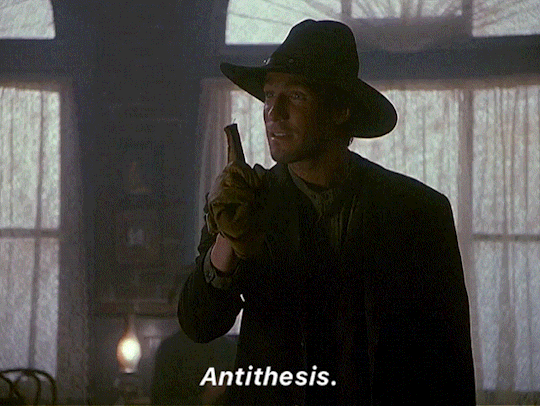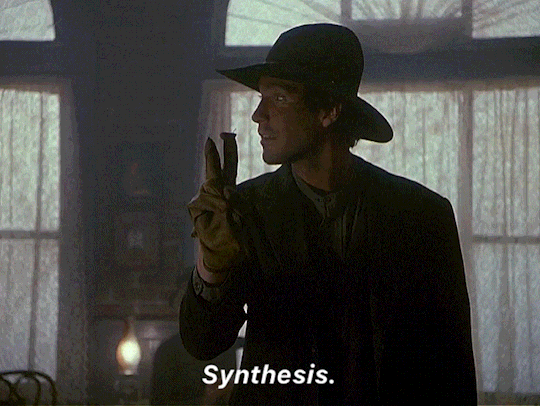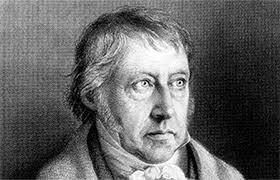#hegelian dialectic
Text
Wickedness also resides in the gaze that perceives itself as innocent and surrounded by wickedness.
Georg Wilhelm Friedrich Hegel, Source Unlisted.
#philosophy tumblr#philoblr#german philology#philosopher#hegel#dialectics#hegelian dialectic#problem of evil#metaphysics#conuintio oppositorun#phenomenology#meta ethics#existentialism#dark academia#life quotes
78 notes
·
View notes
Text



I'm gonna recite the three parts of the Hegelian dialectic…
NORTHERN EXPOSURE 3.23 Cicely
#cicely#nx 3x23#northern exposure#doctor en alaska#ausgerechnet alaska#hegelian dialectic#kit#john corbett
22 notes
·
View notes
Text
#music#playstation#ps vita#retro#gaming#games#vinyl#beatles#john lennon#philosopphy#hegelian dialectic#lgbt#video games#gayming#ps5
7 notes
·
View notes
Text
engels bir metninde hegelci diyalektiği şöyle yorumlar, “…bu felsefe her şeyin geçici karakterini ve her şeydeki geçici karakteri ortaya çıkarır.”
frederick beiser - hegel
#kitap#edebiyat#blogger#felsefe#kitaplar#blog#kitap kurdu#friedrich nietzsche#friedrick engels#georg wilhelm friedrich hegel#hegelian dialectic#dialectic#karl marx#karl marks#diyalektik#diyalektik materyalizm#tinin görüngübilimi#tinin fenomenolojisi#marksist estetik#1844 felsefe elyazmaları#felsefe blog#felsefi fragmanlar#bertolt brecht#das kapital#ekonomi politik
7 notes
·
View notes
Text
I am thus making an argument for limit consent, a type of consent that is conceptually grounded in negative dialectics. Affirmative consent emerges out of the tradition of reading the Hegelian dialectic as giving us an ethic of recognition, wherein wishes and boundaries are communicated and negotiated, recognizing each other's needs so as to reach a syntheic conclusion (for example, what kind of sexual contact both are assenting to). But in this volume, I explore a different ethical terrain than the one we are accustomed to, which arises in the confrontation with the irreducible opacity in oneself and in the other. Where affirmative consent imagines a subject that can be fully transparent to herself, the kind of psychoanalysis you will find in this volume acknowledges that the self cannot be fully known, that we are always somewhat opaque to ourselves, and, therefore, that consent negotiations always involve more than we think we bargained for: they involve the confrontation with what is irreducibly alien to us about ourselves.
Avgi Saketopoulou, Sexuality Beyond Consent
What I appreciate about Saketopoulous's work, and what distinguishes her from so many analysts, is her humility. Her philosophy: You don't know yourself, and the analyst doesn't know you, either.
This is in no way an invitation to jettison affirmative consent in sexual encounters, nor to minimize harm from sexual assault. That would be totally contrary to this philosophy. Sexual assault is about one person trampling the other's subjectivity; this approach is about having some sort of awareness of or even reverence for the unknowable in the deep subjectivity of the other. Acknowledgement of this human fact requires us to assume even more responsibility for the consequences of our behaviors on others.
Avgi writes that "consent is an inside job." I find that the psychological response to both sexual assault and the Me Too response to sexual assault, and even the psychological response tot the "sex positive" movement itself, can be a desire to make desire and behavior simple, explainable, and justifiable to the community. This denies us our complex sexual agency, and the energy that emanates from opacity. I love this book as an intervention which opens us up to inquire, with humility and curiosity, about the complex worlds within us.
#avgi saketopoulou#sexuality beyond consent#hegelian dialectic#affirmative consent#opacity#psychoanalysis#cw sa
5 notes
·
View notes
Quote
“Ten el valor de equivocarte”
Friedrich Hegel

Georg Wilhelm Friedrich Hegel, fue un filósofo del idealismo alemán nacido en Stuttgart en agosto de 1770. El último de la modernidad, y el tercero entre los denominados “tres grandes cartesianos”, junto con Immanuel Kant y Edmund Husserl.
Primeros años
Realizó sus primeros estudios en un pequeño instituto de su ciudad natal, en 1793 estudió en el seminario de la Iglesia protestante en Wurtemberg, llamado seminario de Tubinga en donde cursó estudios de teología y fue compañero del poeta Hölderlin y del filósofo Schelling.
Estudió detenidamente las obras de Aristóteles, Descartes, Platón, Spinoza, Kant y Rousseau.
Gracias a su amigo Schelling logró acceder como docente a la Universidad de Jena en 1801, en donde 5 años después, las fuerzas napoleónicas propiciaron su clausura.
Legado
Un gran aporte de Hegel fue la introducción del concepto de Dialéctica en la filosofía.
El razonamiento dialéctico presupone la deliberación y disputa sobre tesis que se contraponen, y la necesidad de decidir sobre la tesis correcta, basada en la capacidad de debatir y argumentar, apoyado en la concepción general de que todo en la naturaleza, incluyendo al ser humano, están en constante movimiento, conectados todos entre si.
En realidad, este sistema filosófico y el pensamiento de Hegel fue considerado en su tiempo un pensamiento complejo.
Por tal razón, los estudiosos de Hegel decidieron desmenuzar este sistema dialéctico en tres etapas: Tesis, Antítesis y Síntesis.
Hegel consideraba el idealismo de Fitche de “subjetivo”, el de Schelling de “objetivo” y el suyo como “absoluto”, para hacer notar la incapacidad de éstos para resolver la “contradicción”, tarea que el consideraba el fin último de la filosofía.
La contradicción para Hegel significaban el conjunto de oposiciones que determinaban la historia de las ideas desde el pensamiento clásico como el bien y el mal, lo singular y lo universal, la naturaleza y el espíritu.
Hegel pensaba que para superar la contradicción, debería llevarse a cabo a partir del pensamiento “dialéctico”, cuyas fuentes estaban en Heráclito y Platón.
Muchos filósofos modernos cuestionaron su sistema filosófico y criticaron a la dialéctica porque consideraban que se empeñaba en hacer encajar esta en cualquier aspecto de la historia humana.
La filosofía de Hegel le dió un impulso al historicismo el cual consideraba un método adecuado para el estudio de la sociedad, en donde el desarrollo histórico revelaría tendencias en el devenir futuro y politico de la sociedad.
Con lo anterior Hegel se valía de su método para explicar toda la historia de la filosofía, la ciencia, el arte, la política y la religión.
Muerte
Hegel murió en Berlín a causa de una epidemia de cólera en noviembre de 1831 a la edad de 61 años.
Fuentes: Wikipedia, historia-biografia.com, scielo.br, biografiasyvidas.com
#frases#citas filosóficas#georg wilhelm friedrich hegel#hegelian dialectic#notasfilosoficas#frases de reflexion#dialectical materialism#dialéctica#filosofia#Filosofos#filosofar
35 notes
·
View notes
Text
the internet has invented new and beautiful types of idiot. in 2022 its possible to have well-informed perspectives on the hegelian dialectic while not knowing how to buy cigarettes. this phenomenon was limited to the absolute highest echelon of autists in previous centuries (e.g. isaac newton). how far we've come and how far we still have to go
29 notes
·
View notes
Text
the fallout new Vegas to disco Elysium pipeline
#disco elysium#fallout new vegas#fnv#harrier du bois#kim kitsuragi#fallout#oh no another pipeline post#hegelian dialectic#video games#rpg
39 notes
·
View notes
Text
#transgender#neurodivergent#cptsd recovery#relationship anarchy#trauma#philosophy#activism#hegelian dialectic#metacognition
4 notes
·
View notes
Text
youtube
Courier Six has a few things to say about Caesar's interpretation of Hegelien Dialectics. ⚠️ Language and volume warning!⚠️
2 notes
·
View notes
Text
Hey dude are you okay? I saw you reading Hegel and I’m worried about you…
#philosophy#shitpost#philosophy memes#continental philosophy includes the French :(#hegel#hegelian dialectic
16 notes
·
View notes
Text
This is literally dialectic reasoning.

Thesis: Shampoo is better because it goes on first and cleans the hair.
Antithesis: Conditioner is better because it makes the hair silky and smooth.
Synthesis: Billy never makes the next leap but we can. The reality is that shampoo and conditioner work together to ensure proper hair care and should therefore be used in tandem as part of your hygiene routine.
Congrats, you understand Hegel.
6 notes
·
View notes
Text

fast -> slow food spectrum
#food#lgbt#philosophy#lore#hegelian dialectic#subway#little ceasars#pizza#burgert#burger#restraunt#ice cream#fast food
4 notes
·
View notes
Photo

düşüş insanın ilksiz-sonsuz mythosudur ki, insan tam olarak onun yoluyla insan olur.
friedrich hegel - tarih felsefesi
#hegelian dialectic#hegel felsefesine giriş#georg wilhelm friedrich hegel#hegel#tarih felsefesi#tinin görüngü bilimi#tinin fenomenolojisi#aforizmalar#felsefe#felsefe blog#felsefi yazılar#kitap#kitap kurdu#kitap blog#ulus baker#Theodor Adorno#minima moralia#friedrich nietzsche#böyle buyurdu zerdüşt#karl marks#das kapital#blogger#Walter Benjamin#Bertolt Brecht#frankfurt dersleri#milan kundera#diyalektik#Michel Foucault#kelimeler ve şeyler#albert camus
32 notes
·
View notes

